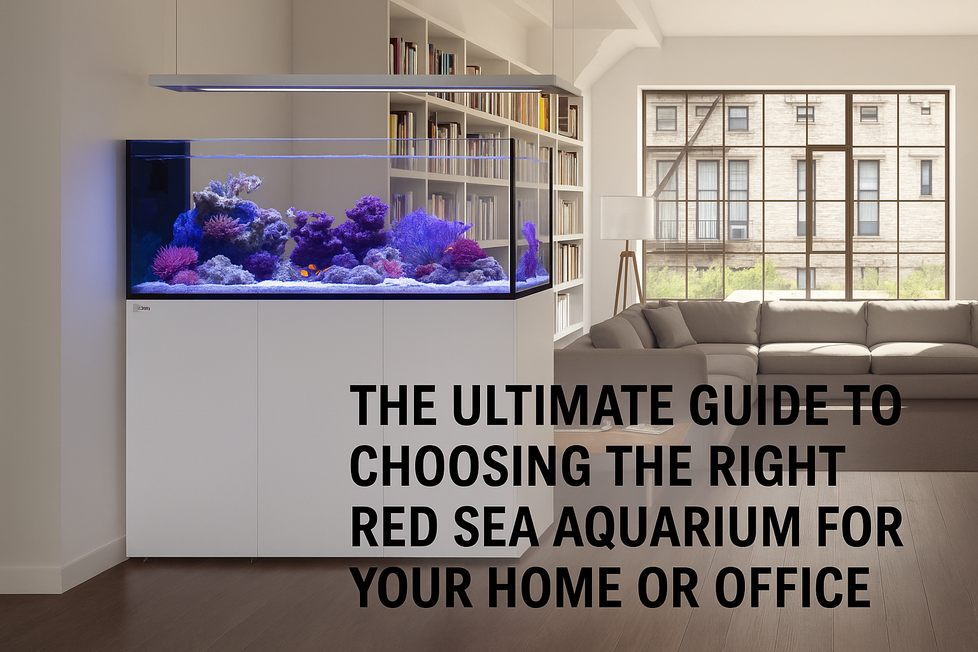When we look over at our aquarium or vivarium it's hard not to see all the equipment and plugs needed to run the system, but the good news is this, its energy consumption might not be as bad as you think. A recent study by Juwel Aquariums showed that their 240-litre system (lighting, pump, heater etc) costs around 40p per day.
While we appreciate this is very much a guideline, with a fully kitted out reef system costing more, and a planted nano costing less. When compared with the average running costs of essential household equipment (we personally believe aquariums fall into the essential category) you will all feel better. A fridge costs around 82p a day and a heating system around £2.20!
But there is even better news. There are ways that you ensure your tank is running in the most energy-efficient way possible, whether that's new equipment, how you set it up, or even how you purchase your conditioners, additives and food.
Below we have put together some tips and hints to help ensure your system is as energy efficient, and cost-effective as possible, and we have also discounted a range of products that will help you do the same!
SHOP OUR ENERGY-SAVING SALE NOW - https://charterhouse-aquatics.com/offers/last
Lighting
Tips - Most lighting is adjustable, so ask yourself the question, do my lights need to be running for as many hours as they do, or at the percentage intensity, I have them set up? Also, how essential is that moonlight setting you have running throughout the night? Remember, if you are going to make changes, ensure they are small and gradual!
Pumps & Filters
Just the same as lighting, both pumps and filters have come a long way in recent years. With pumps using lower watts and voltage to provide the same level of flow. If you can get yourself a DC pump, the flow can often be controlled via the amount of energy used, not via a valve over the outlet that not only means the same energy consumption but also back pressure on the impeller. Check your current pumps, filters and powerhead stats against new models on the market, as an upgrade may pay for itself quicker than you think.
Tips - There are two easy things you can do to ensure your pumps and filters are running as efficiently as possible. First, make sure they are clean, that means both impeller chambers and filter media.
The second, try not to restrict that flow, check you are using the right size tubing (the bigger the better) where pumps and concerned.
Heating
Heating can be a difficult one, often heaters are some of the biggest energy consumers in our aquariums, and temperature is not something you want to get wrong. They are often essential too, but that doesn't mean there are no ways to make a saving.
The first is to check what heater you have, and how it is controlled. The basic heaters with a built-in thermostat are the most common, if you are running one, check that this is in an area of high flow to ensure maximum heat transfer, and check what it's set to, you would be surprised how many species actually prefer a slightly cooler water column.
The second is heaters with a controller. They can help your heating set-up be as efficient as possible, only having the heater on when really needed, and provide a reliable temperature reading to control this via a separate probe, that can be situated in the most convenient location.
Tips - as before, make sure your heaters are kept both submerged and clean, this will mean efficient heating and therefore power usage. Also if you have a backup heater in place, make sure this is set just a little lower than your main heater, it will kick in if your main heater fails, but won't kick in unless it's necessary.
Conditioners, Additives & Food
his is less about energy consumption and more about clever buying. Each of us has to buy foods, water conditions and additives for our aquariums, but have you ever thought about which types you purchase, and in what quantities?
The choice you make is often chosen (and rightly so) on brands and products that you value and trust, but often these brands offer larger bottles/boxes at a more competitive rate. Often powdered formulas are cheaper in the long run, even if that means a little more work for you.
The same goes for food, bigger quantities often means better prices. In the instance that your preferred brand doesn't offer what you are looking for, or you really want to keep your foods and conditioners varied, why not make the most of our multi-buy deals?
Buy any three foods or conditioners and save 5%


